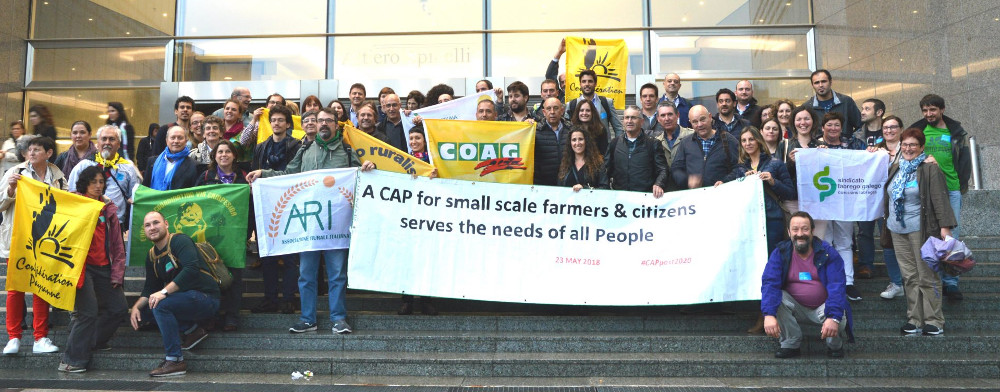ECVC analysis of the proposed regulation for the CAP 2021-2027 reform and the Strategic Plans

For ECVC, the European Commission’s CAP proposal, which is based on simplification and subsidiarity through the Strategic Plans and the new delivery model, entails a serious fragmentation of the policy. It also represents a setback in achieving its objective of cohesion. Despite there being a European framework of common objectives, the degree of fragmentation that the countries experience, and the subsidiarity that the countries experience, will increase the differences between farmers in the European Union. It will also increase the differences between production, working, and economic conditions and lead to distortion of the single market at European level, creating competition through the distribution of CAP financial support. This would worsen the many problems and crises that agricultural markets are facing, without common solutions for a common market.
The EC gives the Member States the responsibility to implement the budget reductions and wants nothing to do with volatility, price decreases and market crises. Therefore, it shoulders the great responsibility for putting an end to a common and supportive policy between Member States. It is unacceptable to impose the largest budget reduction on pillar 2 and to reduce European co-financing, which will put rural and disadvantaged areas at a further disadvantage and undermine the achievement of the Cork objectives.
We have forgotten about the aim to make farmers’ incomes equal to those of the rest of the population. Until now, the sum of the prices that farmers receive, which are increasingly lower due to market deregulation, the domination of the strongest operators in the agri-food chain and direct subsidies, have not been enough to sustain their incomes, which are reducing more and more. The Commission’s legislative proposals, the proposal to reduce the CAP budget and the new free trade agreements that the European Commission is putting forward will worsen the situation.
Moreover, direct support and insurance are not the solution to market crises. To deal with them effectively, we need to create public policies on regulation, control production and stabilise markets. ECVC is against public policy financing for agricultural insurance because it entails privatisation of CAP support and a decrease in farmers’ income. Moreover, it will not provide solutions to crises.
Furthermore, as it is currently distributed, the CAP public support, operating funds and state funds will further entrench large businesses within the production chain as well as speculative investments, the relocation or concentration of production in certain areas, depopulation and difficulties for young people to set themselves up in food production.
The European Commission refuses to direct agriculture towards sustainable and long-lasting agricultural models that ensure local, high-quality food, preserve the environment, boost the rural economy everywhere and guarantee a decent wage for all farmers and a European agricultural policy that meet society’s expectations. The European Commission’s solution is smart farming. For ECVC, this is not sustainable or small-scale agriculture. This plan will push for over-investment, farm expansion and simplification of ever more advanced practices.
This is the essence of our criticisms. The EC does not seem to have realised the seriousness of the challenges facing the planet in terms of the environment, climate change, food, social cohesion and employment, nor that agriculture must play a role and make a transition to sustainable, small-scale agroecological models and processes. To do this, we need to clearly define the model to be targeted, plan the measures that enable and encourage transition, and value the farms that produce in a sustainable way and employ small-scale agriculture practices.
Read our full position on the next CAP reform
